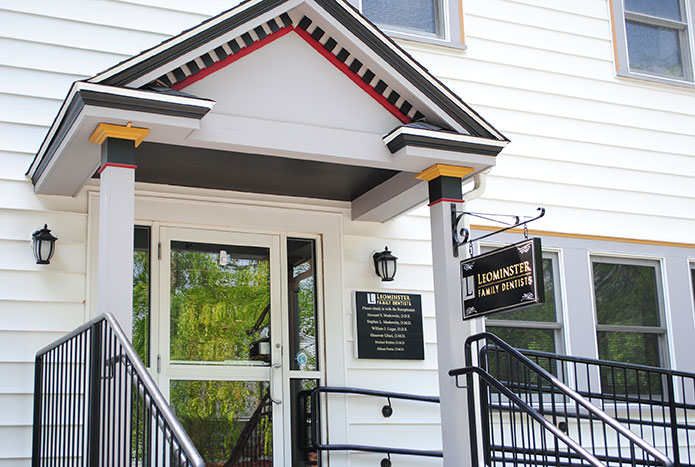Our Patient Resource Center
Schedule An Appointment
You can schedule an appointment online using the Schedule an Appointment button below, or you can call our office during the following hours.
Monday – Thursday: 8:00 a.m. to 8:00 p.m.
Wednesday – Friday: 8:00 a.m. to 5:00 p.m.
Saturday: 9:00 a.m. to 1:00 p.m. (alternating)
If you are in pain or need emergency dental services, we will do our best to get you a same-day appointment.
Please note that we try our best to stay on schedule and minimize your wait times. Sometimes emergency cases can arise, or unforeseen circumstances can lengthen the time for a procedure. We appreciate your understanding.
Home Care Instructions
After most dental appointments, depending on the scope and type of dental procedure, you could experience some side effects the days following your visit.
Some common side effects of dental procedures are teeth sensitivity, sore gums, slight affliction to your speech, and increased salivation. Rinsing with warm saltwater and continuing to brush and floss daily can help many of these symptoms disappear. However, there are certain dental procedures that may require a longer recover time, we’ve listed those below.
-
Crown and Bridge Appointments
Crowns and bridges usually take two or three appointments to complete. In the first visit, the teeth are prepared, and molds of the mouth are taken. Temporary crowns or bridges are placed to protect the teeth while the custom restoration is being made. Since the teeth will be anesthetized, the tongue, lips and roof of the mouth may be numb. Please refrain from eating and drinking hot beverages until the numbness is completely worn off.
Occasionally, a temporary crown may come off. Call us if this happens and bring the temporary crown with you so we can re-cement it. It is very important for the temporary to stay in place, as it will prevent other teeth from moving and compromising the fit of your final restoration.
To keep your temporaries in place, avoid eating sticky foods (gum), hard foods, and if possible, chew on the opposite side of your mouth. It is important to brush normally, but floss carefully. Don’t pull up on the floss, which may dislodge the temporary, pull the floss out from the side of the temporary crown.
It is normal to experience some temperature and pressure sensitivity after each appointment. The sensitivity should subside a few weeks after the placement of the final restoration. Mild pain medications may also be used as directed by our office.
If your bite feels uneven, if you have persistent pain, or if you have any other questions or concerns, please call our office. -
Tooth Extraction
After tooth extraction, it’s important for a blood clot to form to stop the bleeding and begin the healing process. That’s why we ask you to bite on a gauze pad for 30-45 minutes after the appointment. If the bleeding or oozing still persists, place another gauze pad and bite firmly for another 30 minutes. You may have to do this several times.
After the blood clot forms, it is important not to disturb or dislodge the clot as it aids healing. Do not rinse vigorously, suck on straws, smoke, drink alcohol or brush teeth next to the extraction site for 72 hours. These activities will dislodge or dissolve the clot and retard the healing process. Limit vigorous exercise for the next 24 hours as this will increase blood pressure and may cause more bleeding from the extraction site.
After the tooth is extracted you may feel some pain and experience some swelling. An ice pack or an unopened bag of frozen peas or corn applied to the area will keep swelling to a minimum. Take pain medications as prescribed. The swelling usually subsides after 48 hours.
Use the pain medication as directed. Call the office if the medication doesn’t seem to be working. If antibiotics are prescribed, continue to take them for the indicated length of time, even if signs and symptoms of infection are gone. Drink lots of fluid and eat nutritious soft food on the day of the extraction. You can eat normally as soon as you are comfortable.
It is important to resume your normal dental routine after 24 hours. This should include brushing and flossing your teeth at least once a day. This will speed healing and help keep your mouth fresh and clean.
After a few days you will feel fine and can resume your normal activities. If you have heavy bleeding, severe pain, continued swelling for 2-3 days, or a reaction to the medication, call our office immediately.
-
Composite Fillings and Metal Restorations
When an anesthetic has been used, your lips and tongue may be numb for several hours after the appointment. Avoid any chewing and hot beverages until the numbness has completely worn off. It is very easy to bite or burn your tongue or lip while you are numb.
It is normal to experience some hot, cold, and pressure sensitivity after your appointment. Injection sites may also be sore. Ibuprofen (Motrin), Tylenol or aspirin (one tablet every 3-4 hours as needed for pain) work well to alleviate the tenderness. If pressure sensitivity persists beyond a few days or if the sensitivity to hot or cold increases, contact our office.
Connecting to Our Office
If you have questions about your recovery after a dental procedure or would like more information on home care instructions, please call our office at 978-534-9216 or schedule an appointment to visit.

